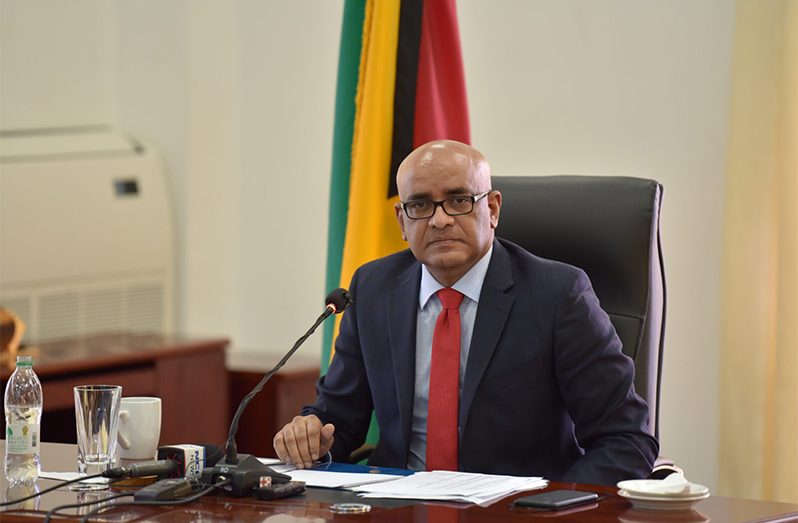–VP Jagdeo says importation of skilled labour is an option
WITH Guyana poised for significant growth in various industries, the government has developed a plan to take jobs and economic activities to rural areas, specifically in Linden and the hinterland regions.
This was explained by Vice President, Dr Bharrat Jagdeo, during a press conference last Thursday, where he addressed issues affecting the labour shortage in Guyana. There is a growing need for skilled professionals to fill the demand given the country’s rapid infrastructural transformation and the Vice President said the importation of skilled labour is an option.
“The labour shortage is a huge problem, and the business community is complaining they are not getting labour. A lot of work is ongoing for housing, construction, and roads. The country is in a building boom,” the Vice President said.
He explained that the government has allowed “some” import of skilled labour, but without opening a “floodgate” since the main objective is putting money in the pockets of all Guyanese.
Jagdeo acknowledged that some private entities have already recruited foreign workers. But the government is keen on moderating the importation of foreign labour.
“We have allowed and we are allowing some labour to come here but without opening a floodgate and the reason why we are doing this is because in some parts of the country, we still have pockets of unemployment,” he said, while in other regions, jobs are readily available, including in Regions Three and Four.
“So, that’s why we are encouraging a lot of the people who need workers in Georgetown or the oil and gas industry… why not build facilities so if people are coming from Linden or maybe Region One or Region Six, they can stay in these facilities and maybe go back [home] on weekends,” Dr Jagdeo contended.
He added that the government has a plan “to take jobs and more economic activities into the rural areas, into Linden and the hinterland,” which will support investments in those communities.
Recognising the change in the workforce, especially with more women, Dr Jagdeo said the government had rolled out initiatives, such as the part-time job programme as the government seeks to increase disposable income.
He added that the People’s Progressive Party Civic (PPP/C)-led government is pushing for the holistic upliftment of workers in Guyana that addresses not only their technical skills but also their social and emotional well-being.
The government is currently providing training in “high demand” skills such as heavy-duty equipment operators, electricians, plumbers and carpenters, giving the “construction boom.”
“We want to get all of our people, our own people across the country, Guyanese working first, getting good paying jobs,” he said.
Earlier this week, President Dr. Irfaan Ali announced that ‘a holistic upliftment of workers is underway in Guyana’ since its interest and its human resources much be placed in the forefront.
President Ali said that this “holistic” vision is aimed at ensuring that workers are equipped with the necessary tools and support to meet the demands of a changing job market.
However, by taking a comprehensive approach to uplifting workers, he hopes to create a more resilient and sustainable workforce that can adapt to changing circumstances and thrive in the long term.
Dr Ali added that one of the issues with which the government is faced is recruiting and training persons by the end of next year.
“Six thousand to be trained in different areas of hospitality by the time we get up to 2024 or otherwise, we will be in a crisis. The hotels are already saying, ‘We are not finding workers.’ A lot of pressure on the system.
“… I met with all the major contractors, private and public, and they said to me, ‘We can’t find labourers.’ And, you find, because the salary is so large now, people are working a day pay of a minimum of $10,000,” the Head of State said.
Dr Ali related that the discipline in the workforce is eroding, since workers only show up to work for two or three days a week and are content with earning a salary of $30,000 for that limited amount of work.
This behaviour is seen as problematic because it indicates a lack of commitment and dedication to the job, which could, in turn, have negative consequences for both the individual worker and the organisation for which they work.
“That is a major, major problem that we will have to address,” President Ali said, noting that the government is taking a holistic approach to tackling the issue.
“When I speak about the holistic worker, together, all of us now have to educate our workers on productivity, staying disciplined, staying in the labour force, the consistency of labour, it is going to be a major, major problem,” the Head of State said.




.jpg)









